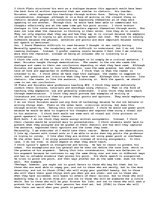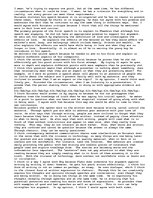-
Plato, Socrates, Ong and McLuhan
I think in a way I agree with Ong because Plato does undermine his argument against writing by writing it down; however, he gets his point across effectively. I think his form of writing is not as common as perhaps, an essay. He uses dialogue, which I think is the closest form of written expression to rhetoric. Through this he can creatively express his thoughts and opinions through speeches and conversation, even though they are being written. He is doing two things at the same time. He is expressing his thoughts verbally through speeches and at the same time, he is ensuring that his potential audiences are reading his words and forms of expressions. He provides them with examples of good and bad speeches as well as opinions. This in turn can help strengthen his argument. In my opinion, I think I would agree with both sides.
McLuhan argued that the introduction of the phonetic alphabet had a civilizing effect on mankind because he explains how different cultures reacted to it. For example, the Greeks and how they acquired more knowledge than any other country in its time. The alphabet, McLuhan argues civilized mankind because books were produced and circulated helping society become more literate and knowledgeable. Essentially, according to McLuhan, "only the phonetic alphabet made a break between eye and ear, between semantic meaning and visual code; and thus the only phonetic writing has the power to translate man from the tribunal to the civilized sphere, to give him an eye for ear." (pg 27)
…



